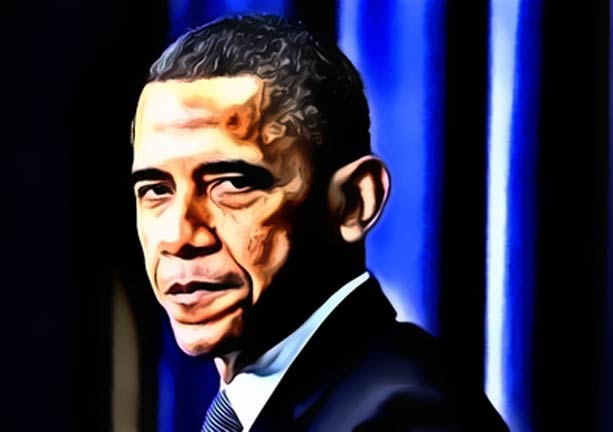
The consequences of President Obama's passive foreign policy came close to home this week.
My Washington Post colleague Jason Rezaian, the paper's Tehran bureau chief, has been languishing in an Iranian jail for 15 months on bogus charges of espionage. He was put on secret trial by a kangaroo court. On Sunday, Iranian state TV reported that he had been convicted.
And Obama said . . . nothing. He didn't go to the briefing room and make a statement. He didn't even release a written statement. On Tuesday, his press secretary, in response to a reporter's question at the briefing, responded with what might have been described as minor annoyance with the Iranian regime.
"We've got a number of concerns," the spokesman said, mentioning the "unjust" detention and "opaque" process.
Where was the demand that Iran immediately release Rezaian and the two or three other Americans it is effectively holding hostage? Where was the threat of consequences if Tehran refused? How about some righteous outrage condemning Iran for locking up an American journalist for doing his job? Even if Obama's outrage came to nothing, it would be salutary to hear the president defend the core American value of free speech.
Officials who defend Obama's detached approach say this is an example of his patient diplomacy, his belief in playing the long game. If the president were to speak out passionately about Rezaian, they argue, Obama would only make Rezaian more valuable to the Iranians as a bargaining chit. That's why a demand for his (and the others') release wasn't a condition of the nuclear deal.
But at some point patience becomes passivity; Obama's game is so long that it often appears he isn't playing at all. In my colleague's case, it's baffling that the administration won't use the considerable leverage it has. With sanctions easing because of the nuclear deal, Iran is hungry for U.S. investment. Would it really hurt the president to warn — accurately — that U.S. businesses will be reluctant to set up shop in a country that kidnaps and locks up Americans for no reason? Perhaps the Europeans, eager to invest in Iran, could use a reminder of this, too; British and Canadian nationals have been treated similarly.
That's the view of Ali Rezaian, Jason's brother, who is frustrated with the public quiescence. "The administration needs to make it clear that businesses aren't going to be able to engage in a state that treats foreigners like this and treats innocents like this," he told me. If a journalist is called a spy for doing his job, imagine how the Iranians will treat Americans working for, say, defense contractors such as Boeing or General Electric.
Secretary of State John F. Kerry, to his credit, is doing much behind the scenes to try to secure Rezaian's release. Officials figure the (relatively) moderate President Hassan Rouhani and Foreign Minister Mohammad Javad Zarif will be in a stronger position to push the ayatollahs to release the Americans after the lifting of sanctions boosts the Iranian economy. The goal is some sort of prisoner swap in which Rezaian, and perhaps the other Americans, are freed in exchange for the release of those held in the United States for violating sanctions against Iran.
But the public posture of the White House is baffling, even to some in the administration. Those inside and outside the administration I've talked with say the detachment follows a familiar pattern. On issue after issue, national security adviser Susan Rice and White House Chief of Staff Denis McDonough, channeling Obama's own skittishness, have resisted more engagement when advocated by the likes of Kerry or U.N. Ambassador Samantha Power.
Obama, afraid of owning a foreign policy fiasco the way George W. Bush owned the Iraq war, has instead erred on the side of doing and saying little about problems. His few attempts at decisive policy — the "red line" in Syria, for example — have ended badly. And so Obama disengages. He has been reluctant to take on Russian aggression in Ukraine or China's expansionism, and he has been maddeningly vague about Syria. The silence, and the resulting ambiguity about the American position, only create more chaos — and increase the need for the very intervention Obama dreads.
This summer, Obama was furious when Major Garrett of CBS News asked him why he was "content, with all of the fanfare around this [nuclear] deal, to leave the conscience of this nation, the strength of this nation, unaccounted for, in relation to [the] Americans" detained by Iran.
Obama lectured Garrett: "That's nonsense, and you should know better."
If only Obama were willing to speak so forcefully and passionately to the Iranian regime, Jason Rezaian might be a free man.
Comment by clicking here.
Dana Milbank writes about political theater in the nation's capital.



 Contact The Editor
Contact The Editor
 Articles By This Author
Articles By This Author